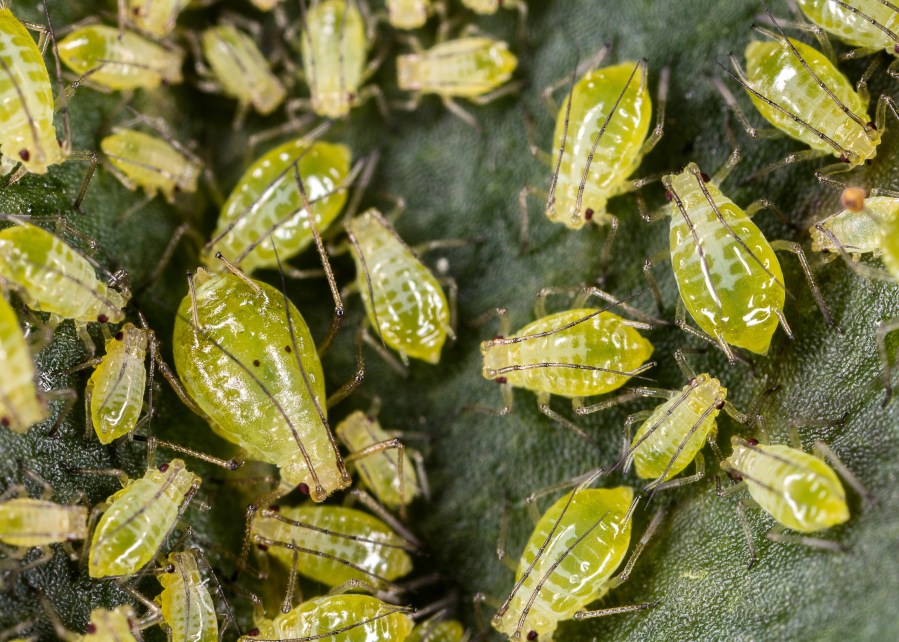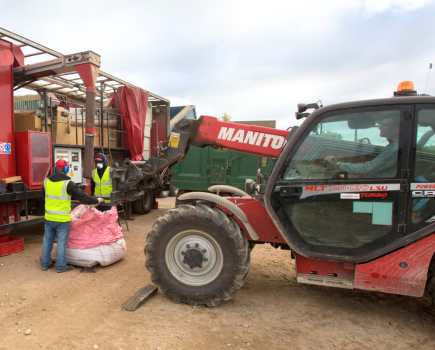Numbers of aphid vectors that transmit barley yellow dwarf virus are significantly higher than this time last year, increasing the chances of a disease epidemic if mild weather continues, warn experts.
The bird cherry-oat aphid is the main carrier of BYDV and during the week to 17 September, Rothamsted Research Insect survey trapped 8,298 of the pests and a further 3,548 in the week to 24 September.
This year’s numbers
That takes the total since monitoring began in March to 23,405, which is already above last year’s total (Mar-Nov) of 18,701. Grain aphids, which are also vectors of BYDV, number 2077 so far, compared with 2041 for 2022.
“Although 2022 was a relatively low aphid year, the mild weather allowed infection to continue across the country right through autumn and winter in most regions, triggering the T-sum for aphicide application four times across most parts of the UK,” says RAGT technical sales manager Dr Cathy Hooper.
“This season’s catch of bird cherry aphids is actually tracking 2021, when more than 94,500 of that species were caught, and we can expect numbers to build again over the next few weeks, especially looking at the weather forecast.”
Cereal colonisers
She says the number of cereal colonisers – winged asexual female aphids that migrate to cereal crops – is concerning, running at 84% compared with the 10-year average of 41%.
“If we have another mild autumn and winter like last year the threat of a disease epidemic is very real,” says Cathy.
“Many growers, not just those in the usual BYDV hotspots, could face another season of multiple insecticide applications and all the management and expense that entails, assuming they can travel with the sprayer.”
An alternative solution
More and more growers are exploring the benefits of growing RAGT’s Genserus (genetic security virus) wheats, Europe’s only commercially available wheats with BYDV resistance.
They offer an alternative to chemistry, as the resistance trait gives total control from planting to harvest, and their potential has been demonstrated in a number of trials in the 2022/23 season.
Trials
In RAGT’s own trials at Ickleton, Cambridgeshire, seven Genserus varieties were compared against a range of popular and pipeline conventional varieties.
They received Recommended List-protocol fungicide and PGR treatments, but no aphicide. Plots were inoculated with four sets of BYDV-infected aphids at two-week intervals in the autumn and again in the spring.
All seven Genserus varieties outyielded the conventional varieties which Lee Bennett says shows how effective the resistance trait is. “We’ve been trying to break it for years, but it still keeps delivering, leaving the competition in its wake in these high-pressure situations.”
Trials in county Cork, this time with natural BYDV infection, also demonstrated the strength of the BYDV resistance and as at Ickleton, all plots received fungicides and PGR but no insecticide.
“Genserus varieties put in an impressive performance, taking the top three places, with RGT Grouse taking equal top spot at 106% of controls,” says Lee.




